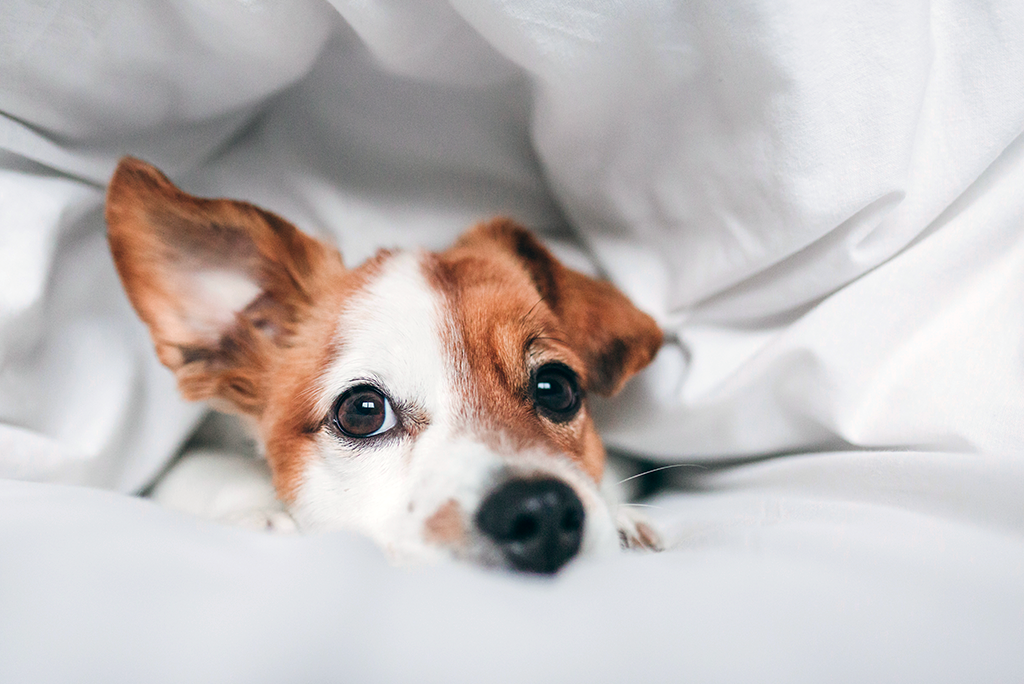During summers in the U.S., we can count on several things: fireworks demonstrations for the 4th of July (and other holidays), and more frequent thunderstorms in certain parts of the country. Unfortunately, the loud noises and vibrations associated with these occurrences can cause severe anxiety in our pets – especially dogs.
So how can pet owners enjoy the fireworks (and endure the thunderstorms) while soothing a shaking, terrified pet at the same time? The key is to be prepared with information and potential medications far in advance of any fireworks display or thunderstorm.

Make sure to have an established relationship with a local veterinarian.
First things first: before prescribing any medication or treatments, a veterinarian will want to have seen your pet within the last year. If you’ve moved to a new area and are entering the summer months, make sure to bring your pet in for an exam. You can either discuss your pet’s specific anxiety at the visit or call back closer to the summer.
Take a multi-faceted approach to soothing your pet’s nerves.
Having a variety of tools to help calm your pet will give you options when the need arises. Talk to your veterinarian about anti-anxiety pharmaceuticals, herbal remedies, and thundershirts. A combination (rather than just one strategy) may be more effective in helping your pet to fully relax.
Test out calming strategies before an event occurs.
The one upside of fireworks is they are generally scheduled, so you know they’re coming. Give yourself some time before fireworks to test out the medication on your pet, to see what the right dose is. Give one-quarter of a dose, for example, and see how your pet is in an hour. Increase to one-half of a dose the next day. Wait until your pet seems sedate from the dose. That’s what you’ll need the day of the fireworks.
Provide any medications in advance to get ahead of anxiety.
Don’t wait until the fireworks have started – by then, it’s almost too late. Your pet’s nervous system is already amped up, and you’ll likely need to administer a much higher dose to calm them. Your goal is to keep their nervous system from going into overdrive in the first place. With thunderstorms, it’s harder to plan in advance. However, if you have a regular pattern of daily afternoon thunderstorms, it’s easier to plan ahead and reduce your pet’s distress.
When in doubt, contact your vet.
If your pet is experiencing weather- or fireworks-induced anxiety, contact your veterinarian to determine the best course of action. Your veterinarian can make recommendations for strategies, medications, and treatments that can help keep your pet calm and happy during loud summer events.
 by a veterinarian
by a veterinarian


